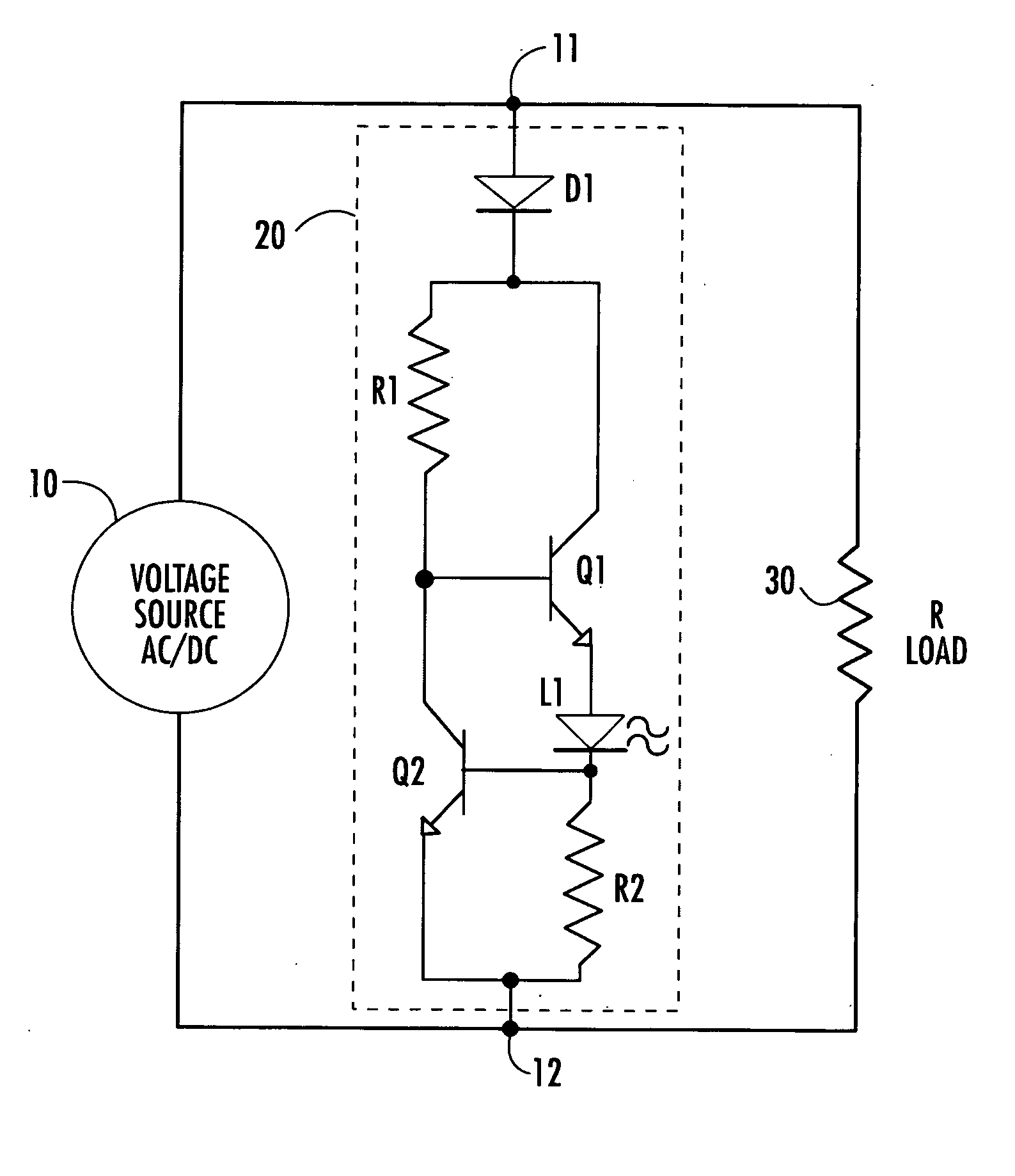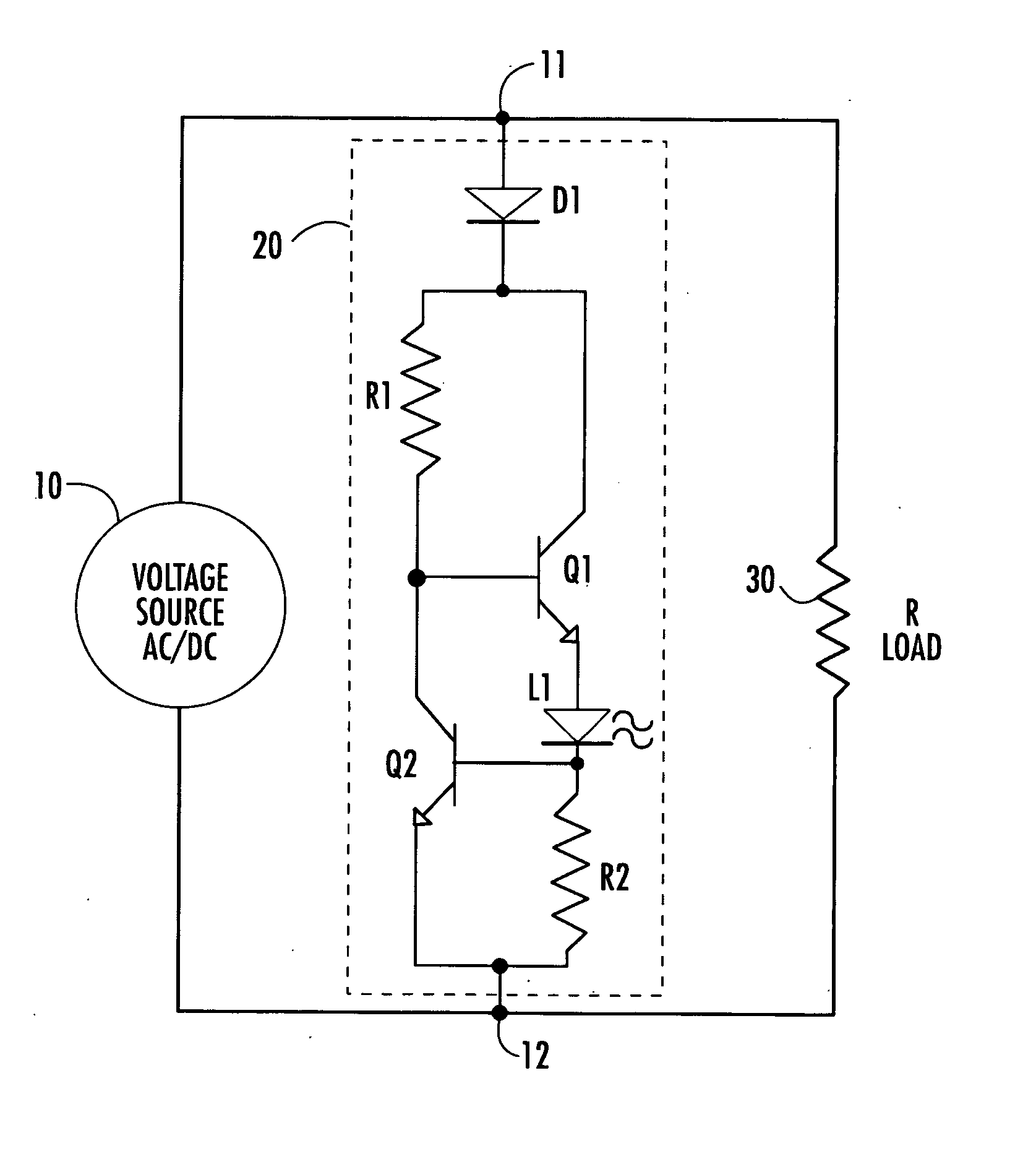Wide input voltage range light emitting diode driver
a light-emitting diode and input voltage range technology, applied in the field of communication circuits, can solve the problems of limiting the utility of a given driver circuit, not allowing the same led driver circuit to be used, and not allowing either ac or dc voltage, so as to reduce the current flow through the collector-emitter path, reduce the base bias, and reduce the current flow
- Summary
- Abstract
- Description
- Claims
- Application Information
AI Technical Summary
Benefits of technology
Problems solved by technology
Method used
Image
Examples
Embodiment Construction
[0008] The overall architecture of the light-emitting diode (LED) circuit in accordance with the present invention is shown diagrammatically in the single FIGURE of drawings, as comprising respective first and second nodes 11 and 12 through which a voltage source 10, which may comprise either an AC or a DC voltage source, is coupled to a load, shown as a resistive load 30 for purposes of simplification. The LED circuit of the invention is contained in broken lines 20 and comprises an input rectifying diode D1 having its anode coupled to node 11 and its cathode coupled to each of a first end of first, series limiting resistor R1 and to the collector of a first bipolar (NPN), LED current supply transistor Q1. Input diode D1 has a peak inverse breakdown voltage that is higher than the peak operating voltage supplied by source 10 to nodes 11 and 12. Input diode D1 serves to allow current to pass through the circuit in only one direction and allows the invention to be employed with an AC...
PUM
 Login to View More
Login to View More Abstract
Description
Claims
Application Information
 Login to View More
Login to View More - Generate Ideas
- Intellectual Property
- Life Sciences
- Materials
- Tech Scout
- Unparalleled Data Quality
- Higher Quality Content
- 60% Fewer Hallucinations
Browse by: Latest US Patents, China's latest patents, Technical Efficacy Thesaurus, Application Domain, Technology Topic, Popular Technical Reports.
© 2025 PatSnap. All rights reserved.Legal|Privacy policy|Modern Slavery Act Transparency Statement|Sitemap|About US| Contact US: help@patsnap.com


